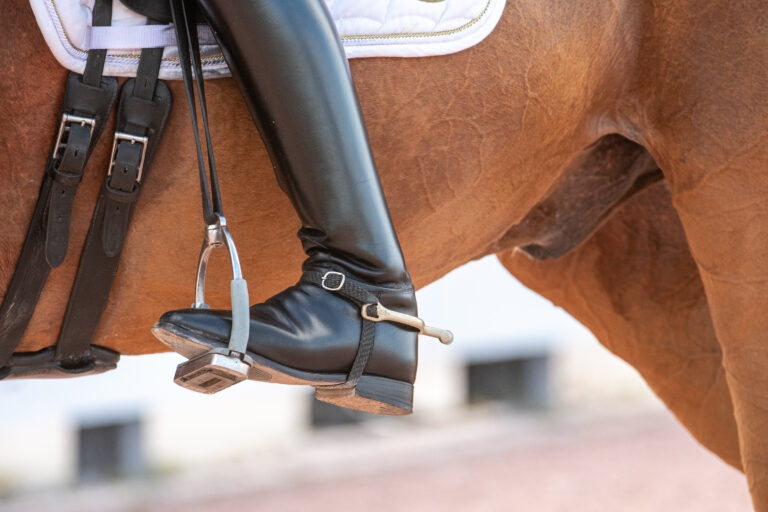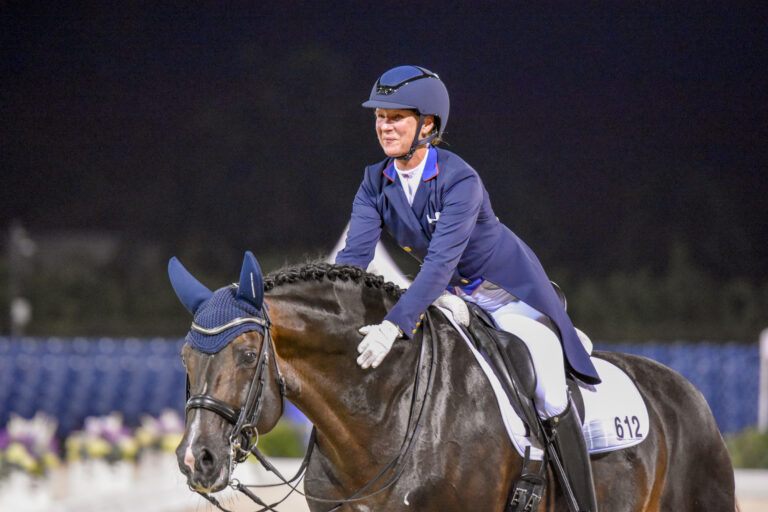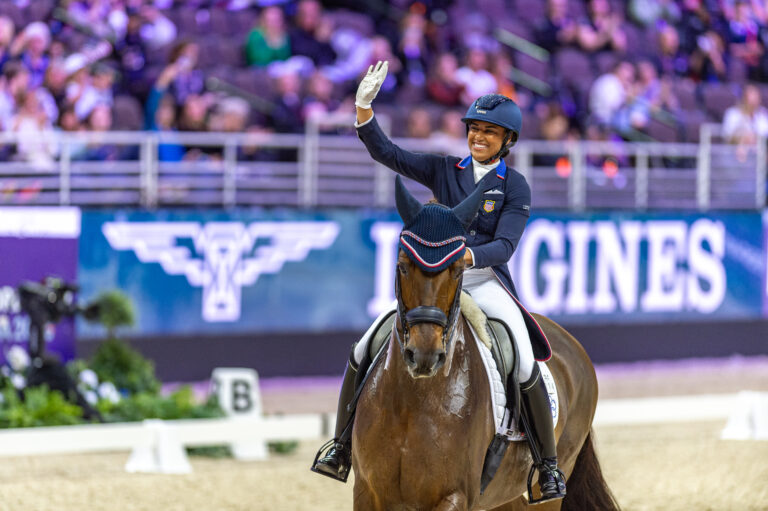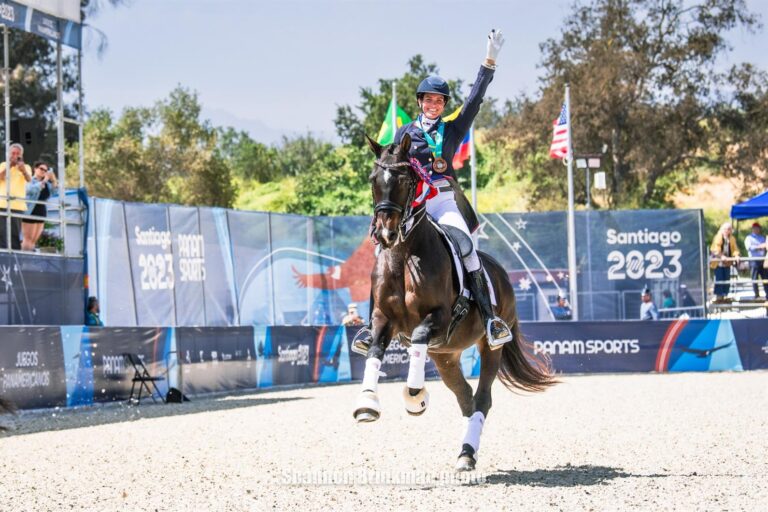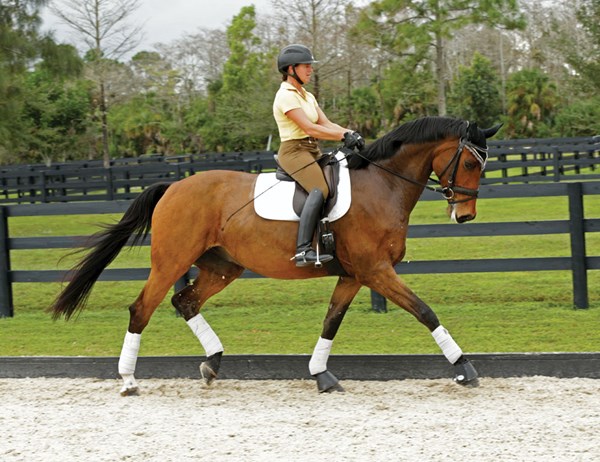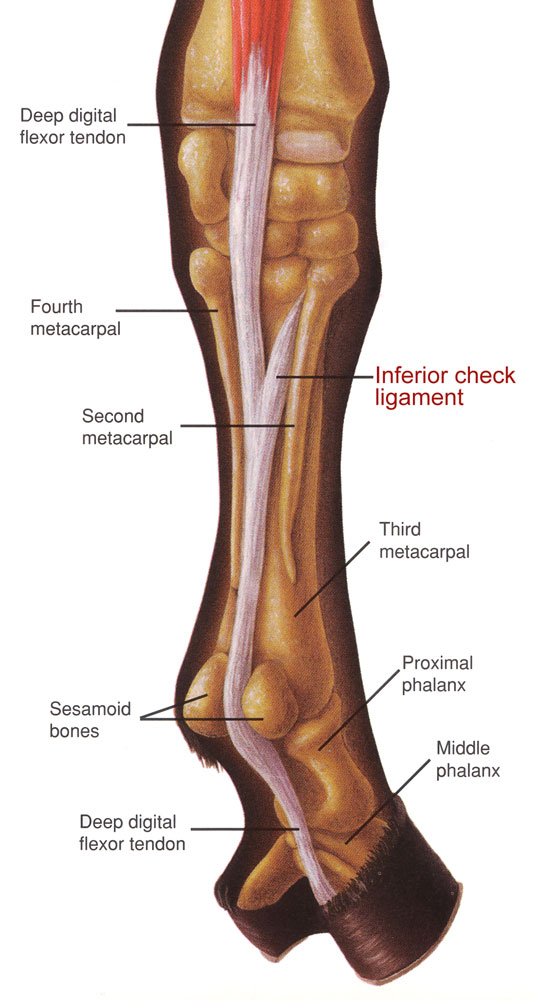Follow along with all the Olympic action from Rio!

All the far-flung Olympics of the 21st century have been distinctive, from Sydney, Australia, in 2000, the first Games Down Under to host all the athletic events, including equestrian; to Greece, the cradle of the Games, in 2004; Hong Kong 2008, when the equestrian disciplines were separated from the other sports based on the mainland of China, and the more traditional location of London in 2012 that prompted memories of “Chariots of Fire.” But the Rio de Janeiro Games, Aug. 5–21, in Brazil, the only Olympics ever to be held in South America, could trump them all with the exotic flavor of a city known for its lively Carnival, the samba and legendary beaches.
“It will be different, but it will be great,” maintains Cesar Hirsch, chief steward for the equestrian events, which will be held at the Deodoro Olympic Park. Deodoro, a military compound, is the same location that hosted the 2007 Pan American Games, but it has been vastly upgraded since then. Although Rio’s crime is infamous, Deodoro will be as secure as it gets with armed soldiers (there are barracks on-site) insuring peace not only for horses and riders, but also for the other 10 sports—including pentathlon, field hockey and shooting—as well as Paralympic competitions that are held there.
Since the Games were awarded to Rio in 2009, the situation in Brazil has taken a sharp downturn. There has been a move to impeach the president and predictions in early 2016 were that the country would be dealing with its biggest economic recession since such recordkeeping began in 1901.
Although Brazil successfully staged the 2014 Soccer World Cup, the multi-sport Olympic Games are a much more complicated proposition. The International Olympic Committee was critical of Brazil’s pace in terms of getting ready for the Games and pushed hard to speed it up. That was reminiscent of what happened in the lead-up to the Athens Games, though in the end they came out all right.
Still, Brazil’s financial burden looms large. Last October, 30 percent budgetary cutbacks were announced for the Games, involving such peripheral costs as promotions, the opening ceremonies and volunteers—areas that are said not to affect the athletes and which may not make a difference to spectators. There are some very difficult problems, however. Although Brazil committed to clean up polluted waterways, its determination has fallen short with widespread reports of petri-dish conditions due to sewage, garbage and dead fish still plaguing areas where sailing, windsurfing, rowing, canoeing and other water sports are to take place. But riders won’t have to worry about that in Deodoro, located on the north side of the city about 90 minutes or so, depending on Rio’s nightmare traffic snarls, from Copacabana Beach and a half-hour from the Olympic village in Barra.

The stables have been redesigned and supplemented to offer more room and wider aisles. A veterinary clinic will take care of horses’ medical needs, and footing in the arenas is top-notch. All the horses will be arriving over two days, and there will be a four-day period when every horse competing is on site, which is different from what happened in London.
While American riders and support staff are under the wing of the USEF and the U.S. Olympic Committee, it’s a different story for spectators. “Rio is going to be very challenging,” said USEF Director of Sport Will Connell. “It’s not like London, where the housing stock was huge.” The hoteliers, he noted, “have all the cards in their hands,” so hotel rooms are expensive. “If you want luxury, you’re going to have to pay an awful lot of money,” Connell reported.
Although $800 is a going, often-seen rate for places that would run much less before or after the Olympics, he estimated prices could be inflated by as much as seven or eight times the usual amount across the gamut of hotel properties.
Jim Wolf, who preceded Connell in the sport director’s job, also noted there will be real contrasts with the 2012 Games. “For the people who are accredited, it will work fine,” he said. “Rio as a destination is a terrific place to visit,” he continued, but explained it has to be taken into account that it is “following on the heels of London that was very user-friendly for people from this region [North America] to go to. They speak the same language, people probably had been to London before. They knew how to get around and how to do things.”
Aside from the hotel issue, finding a way to reach the venues won’t be easy. “The challenge, if you’re not accredited, is how you get there. There is some public transport, but it will be interesting to see how effective that is,” Connell stated, adding, however, that there are a lot of taxis in Rio. Construction started at the end of 2014 on a new TransOlimpica Bus Rapid Transit line running to Deodoro as one part of a larger project. The link from Barra was—no surprise—behind schedule in construction. Dressage chef d’equipe Robert Dover noted that he and other equestrian coaches are scheduled to spend a day in Rio during March to get a look at the facilities at Deodoro. Some riders will stay in the Olympic Village and can get transport from there. Others will stay in the functional hotel that also will house U.S. staff and a few horse owners. The USEF has cars and drivers to get everyone to Deodoro. The advantage of having drivers, rather than parking at Deodoro, is efficiency: The same vehicle can make round trips from the venue to the hotel and back again in order to accommodate everyone.
Another concern for those who want to watch the Games is safety. “The security side of Rio—yes, you must be very aware of it,” Connell replied when questioned. “If you’re in the right part of Rio and you’re sensible, I don’t think it’s too much of a challenge. If you go walking in the wrong part of Rio at night, you’re likely to lose your valuables, but that’s the same in many cities. The moral of Rio is make sure you’re 100 percent organized before you get there.”

Competitors, however, don’t face those problems and can concentrate on their mission. “The riders are on the other side of the wire,” is how Connell puts it. Even so, they will have to deal with a country that is far different than the European locations where most of them have had their foreign competition experience. “You’re going to bump into the culture,” said Susie Dutta, the alternate for the 2007 U.S. gold-medal Pan Am dressage team. Pan Am team member Lauren Sammis remembered that the country was quite different from what she was used to. “You have cars on the roads but you also have horses on the roads, and carriages on the roads.” Along the drive to Deodoro, she said, “We passed a lot of shacks.” Although Sammis was taken aback at first to see soldiers with machine guns at the venue, she found the stabling and conditions there “really well done.”
Dutta observed that, in general, the logistics are difficult. “There are a lot of rules in the import of equipment and feed,” she said.
As Wolf pointed out, “There are a lot of bureaucratic hoops to jump through when you’re in that part of the world.”
The most ordinary things can become a task. Dutta recalled it was stressful for the riders to get their equipment returned to them after arrival nine years ago. But even worse was being ordered to take off horses’ leg bandages in an area enclosed by a chain-link fence after the animals were unloaded, so they could be properly identified by authorities. Apparently, it wasn’t enough for them to see the markings on the horses’ faces; they also needed to look at each leg. Sammis said riders were told not to graze their horses at the venue because of the fear of tick-transmitted piroplasmosis.
Dressage team veterinarian Dr. Rick Mitchell, who was very complimentary about the venue, said he isn’t too concerned about that disease. The grass is closely mowed to prevent the proliferation of ticks and, according to Mitchell, the tick population does not present a huge risk, especially for the dressage and show-jumping horses because they are not going cross country like the eventers, though he thought the situation there was not a big worry either.
Horses theoretically could be exposed to screw worms and Venezuelan equine encephalomyelitis, but Mitchell explained there is a seven-day quarantine for horses coming back into the U.S., when problems could show up. None did on the return trip in 2007. Vaccinations, good grooming and insecticides eliminate most of the concern, as does thorough disinfection of the stables before the horses arrive.
Eight months before the team’s arrival in Rio, Mitchell had to send his proposed packing list for his medical trunks to the USEF, which will forward them to Brazilian authorities. “They put some pretty distinct demands on us as far as what they expect us to do and hoops we have to jump through. I’ve got a list of a couple of hundred medications and/or supply items I have to provide, not only quantities, but manufacturers’ addresses. They’re very concerned about products being smuggled into the country illegally, so we’re going to have to maintain a strict inventory.” What is brought into the country has to match what is being taken out, with documention of what has been used on the horses. “For me, it’s just a little extra paperwork,” he said. No riders can bring in supplements unless Mitchell gives them permission.
Dutta’s husband, Tim, who owns the Dutta Corp. international-horse- shipping company, advised, “Any time you travel to an exotic land, you have to have a sense of humor.” Government bureaucracy is part of the culture and, he noted, some complications may stem from the fact that “Rio is not a port of import” in the same way as the country’s largest city, Sao Paulo.
Mitchell reported on an encounter that he and Tim Dutta had at the 2007 Pan American Games when they pulled into the venue with one of the horse van’s brakes spewing smoke. “Tim went to remove the horses, along with me and we had an armed soldier try to stop us,” said Mitchell. “We basically told him to get out of the way because we were going to take the horses off the truck because it was on fire.”
On the brighter side, grooms won’t have to live in shipping containers as they did in 2007, when Susie Dutta remembers bringing them back to the riders’ hotel rooms so they could get a shower and a meal. Connell said new apartment blocks are being constructed adjacent to the venue, offering six-person, three-bedroom living quarters with a kitchen area and sitting room for grooms. It goes without saying that no one can drink the tap water, of course.

Still, it’s important to look at the big picture. “I think for the horses and riders, it will be top class with everything in one location,” said Michael Stone, president of Equestrian Sport Productions and former secretary-general of both the Irish equestrian federation and the FEI. Stone, who was in Rio for the Pan Ams, recalled that crowds generally were light for equestrian, especially for dressage. That isn’t surprising, considering Brazilians are not as prominent in that discipline as they are in show jumping and increasingly in eventing. Also, he noted, “As with many South American countries, equestrian sport is very elite. Socially, there’s a huge divide. I think it’s going to be difficult for them to get huge crowds. On the other hand, people just want to go to an Olympic event. I remember being in Atlanta [the 1996 Games] and meeting people who had come to watch dressage and had no clue what they were watching. People will buy tickets just to be at the Olympics. I think the crowds will be fine,” he continued, adding that their education about dressage is “not going to replicate London.”
As others had noted, the Pan Ams are not the same draw as the Olympics, which is larger, fancier and has more curb appeal. During the Pan Ams, there was some catcalling from the stands as a Canadian eventer was show jumping when the medals were coming down to the wire. “I think that’s part of the soccer culture,” said Wolf. “I’m sure that will be controlled somehow during the Olympics. Rio as a destination is a terrific place to visit,” he added. Stone thinks there is a lot that will be memorable about Rio. “The Brazilians are very friendly and hospitable people, so I imagine the atmosphere from that perspective will be really good,” he said while agreeing with Connell that transport will be tough.
One thing the USEF knows it will have to deal with is “cabin fever.” As Connell pointed out, riders who are used to training a number of mounts each day will be in place for a long time with just one horse, which could lead to boredom. And since flights to Rio are limited, riders will have less flexibility than usual in their travel plans. That’s another contrast to London, where athletes could hop on public transportation and go from Greenwich, where the equestrian events were held, to restaurants, museums or the theater. But riders shouldn’t wander about in Rio. “You can’t just say, ‘I’m going to go for a run at 7 o’clock at night’; that’s probably not that sensible,” Connell commented.
No U.S. horses are going to a major training camp in Brazil beforehand. The eventing horses will attend their training camp in the U.S., a 9-hour flight to Rio from Miami. The dressage horses will be competing in Europe before going to Brazil, an 11-hour flight from Belgium. For the London Games, U.S. horses spent five days in the venue prior to competition. In Brazil, it will be seven to 10 days, giving the horses time to recover from travel. They likely won’t have to adjust to the climate, however, since it will be winter in Brazil (the seasons below the equator are the opposite of North America) with temperatures expected in the 70- to 80-degree range.
Logistical planning for fielding a team at the Olympics usually begins about 10 minutes after the venue is announced, according to Connell. For riders, there were briefings starting in 2015, and the closer they get to the Games, the more those sessions will ramp up with greater detail after selection.
Dover, a six-time Olympian, noted that what is different for him at these Games is that it will be his first time coaching a U.S. Olympic team on his own. “I feel a great responsibility to every single thing that goes into making us a medal-contending team between now and the end of the Games,” Dover said. But he pointed out that for dressage, unlike eventing and show jumping, “Regardless of whether it’s Germany, Rio or London, and certainly some are going to be easier than others, we’re still basically in a sandbox that’s exactly like the sandbox in Wellington or Aachen.”
Connell has some general advice for those who wish to compete. While the USEF does what it can to ease the way, which is considerable, riders “need to adapt to what cannot be controlled. The Olympic Games is one of those situations where, if you deal with the areas you can’t control, then you have a shot at winning a medal. If you allow them to get to you, you will not win a medal. Every Olympics is a challenge.”
Save


